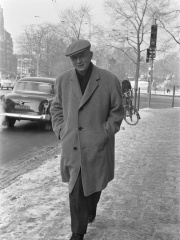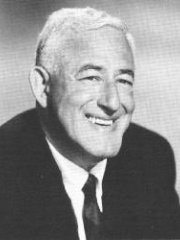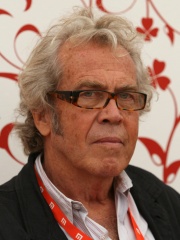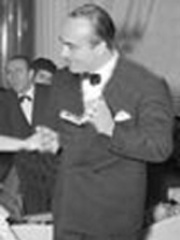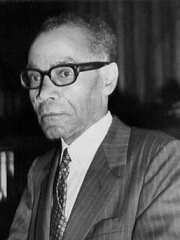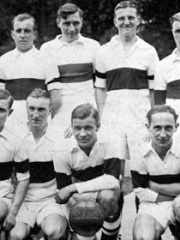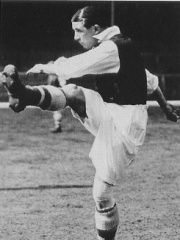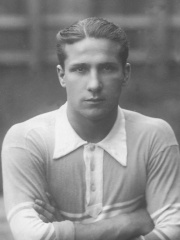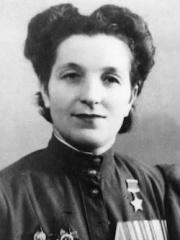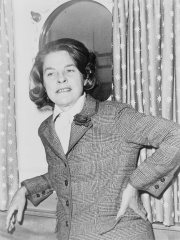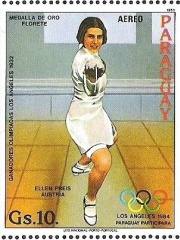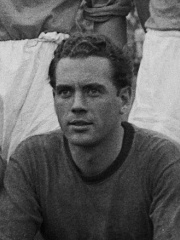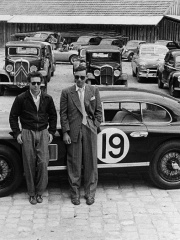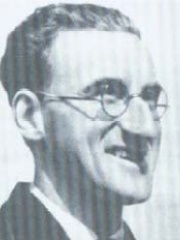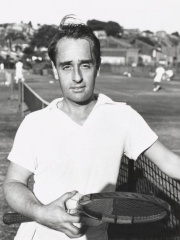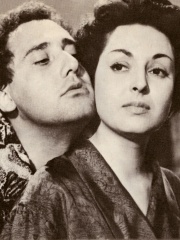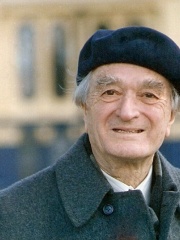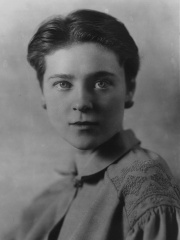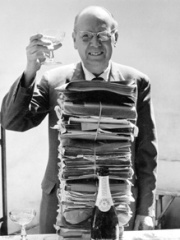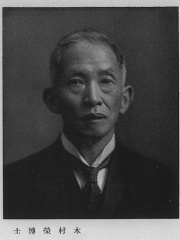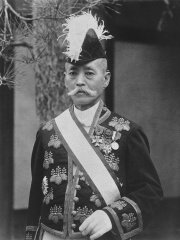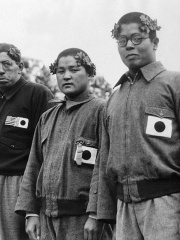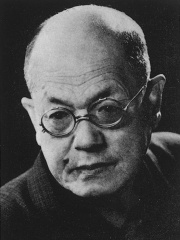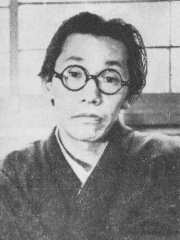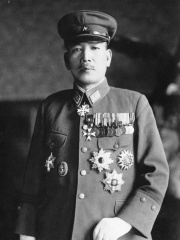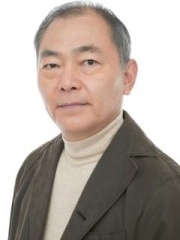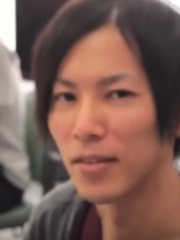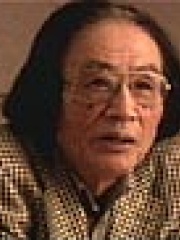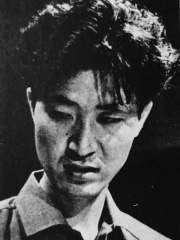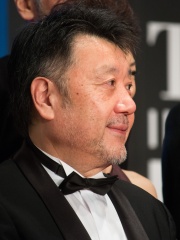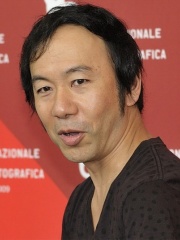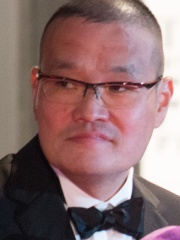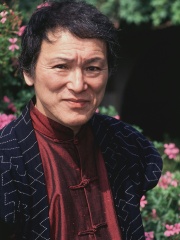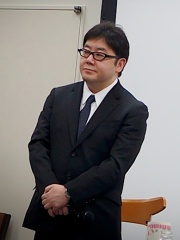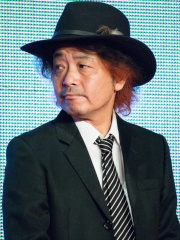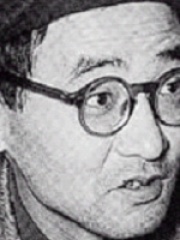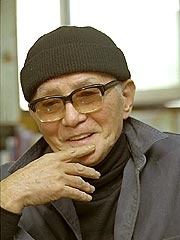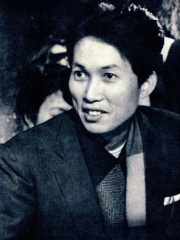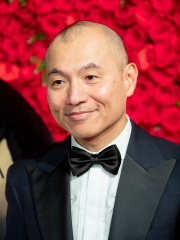FILM DIRECTOR
Tadashi Imai
1912 - 1991
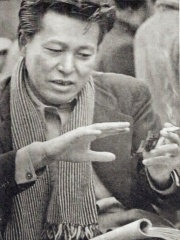
 Tadashi Imai
Tadashi Imai
Tadashi Imai (今井正, Imai Tadashi; January 8, 1912 – November 22, 1991) was a Japanese film director known for social realist filmmaking informed by a left-wing perspective. His most noted films include An Inlet of Muddy Water (1953) and Bushido, Samurai Saga (1963). Read more on Wikipedia
His biography is available in 22 different languages on Wikipedia. Tadashi Imai is the 967th most popular film director (down from 895th in 2024), the 1,260th most popular biography from Japan (down from 1,137th in 2019) and the 43rd most popular Japanese Film Director.
Memorability Metrics
Page views of Tadashi Imai by language
Among FILM DIRECTORS
Among film directors, Tadashi Imai ranks 967 out of 2,041. Before him are Friðrik Þór Friðriksson, Anne Fontaine, John Cromwell, Steven Knight, Safi Faye, and Kevin S. Bright. After him are Jonathan Nolan, Helmut Käutner, Mikael Håfström, William Castle, Jørgen Leth, and Giuseppe Amato.
Most Popular Film Directors in Wikipedia
Go to all RankingsFriðrik Þór Friðriksson
1954 - Present
HPI: 56.68
Rank: 961
Anne Fontaine
1959 - Present
HPI: 56.66
Rank: 962
John Cromwell
1886 - 1979
HPI: 56.66
Rank: 963
Steven Knight
1959 - Present
HPI: 56.65
Rank: 964
Safi Faye
1943 - 2023
HPI: 56.64
Rank: 965
Kevin S. Bright
1954 - Present
HPI: 56.63
Rank: 966
Tadashi Imai
1912 - 1991
HPI: 56.63
Rank: 967
Jonathan Nolan
1976 - Present
HPI: 56.62
Rank: 968
Helmut Käutner
1908 - 1980
HPI: 56.61
Rank: 969
Mikael Håfström
1960 - Present
HPI: 56.61
Rank: 970
William Castle
1914 - 1977
HPI: 56.60
Rank: 971
Jørgen Leth
1937 - 2025
HPI: 56.59
Rank: 972
Giuseppe Amato
1899 - 1964
HPI: 56.59
Rank: 973
Contemporaries
Among people born in 1912, Tadashi Imai ranks 265. Before him are Louis Paul Boon, Léon Damas, Georges Beaucourt, Ted Drake, Iuliu Bodola, and Francisco Cabañas. After him are Maguba Syrtlanova, Mary McCarthy, Miklós Szabados, Willibald Schmaus, Nelly Diener, and Ellen Preis. Among people deceased in 1991, Tadashi Imai ranks 166. Before him are Walter Zeman, George Abecassis, Boris Papandopulo, Adrian Quist, Lea Padovani, and Guy Bourdin. After him are Gustav Wetterström, Hans Schwartz, Ahmet Adnan Saygun, Eva Le Gallienne, Gaston Waringhien, and Alfred Eisenbeisser.
Others Born in 1912
Go to all RankingsLouis Paul Boon
WRITER
1912 - 1979
HPI: 56.89
Rank: 259
Léon Damas
WRITER
1912 - 1978
HPI: 56.83
Rank: 260
Georges Beaucourt
SOCCER PLAYER
1912 - 2002
HPI: 56.79
Rank: 261
Ted Drake
SOCCER PLAYER
1912 - 1995
HPI: 56.76
Rank: 262
Iuliu Bodola
SOCCER PLAYER
1912 - 1992
HPI: 56.75
Rank: 263
Francisco Cabañas
BOXER
1912 - 2002
HPI: 56.67
Rank: 264
Tadashi Imai
FILM DIRECTOR
1912 - 1991
HPI: 56.63
Rank: 265
Maguba Syrtlanova
PILOT
1912 - 1971
HPI: 56.58
Rank: 266
Mary McCarthy
WRITER
1912 - 1989
HPI: 56.54
Rank: 267
Miklós Szabados
TABLE TENNIS PLAYER
1912 - 1962
HPI: 56.53
Rank: 268
Willibald Schmaus
SOCCER PLAYER
1912 - 1979
HPI: 56.53
Rank: 269
Nelly Diener
SOCIAL ACTIVIST
1912 - 1934
HPI: 56.52
Rank: 270
Ellen Preis
FENCER
1912 - 2007
HPI: 56.50
Rank: 271
Others Deceased in 1991
Go to all RankingsWalter Zeman
SOCCER PLAYER
1927 - 1991
HPI: 57.00
Rank: 160
George Abecassis
RACING DRIVER
1913 - 1991
HPI: 56.98
Rank: 161
Boris Papandopulo
COMPOSER
1906 - 1991
HPI: 56.93
Rank: 162
Adrian Quist
TENNIS PLAYER
1913 - 1991
HPI: 56.89
Rank: 163
Lea Padovani
ACTOR
1920 - 1991
HPI: 56.84
Rank: 164
Guy Bourdin
PHOTOGRAPHER
1928 - 1991
HPI: 56.80
Rank: 165
Tadashi Imai
FILM DIRECTOR
1912 - 1991
HPI: 56.63
Rank: 166
Gustav Wetterström
SOCCER PLAYER
1911 - 1991
HPI: 56.59
Rank: 167
Hans Schwartz
SOCCER PLAYER
1913 - 1991
HPI: 56.55
Rank: 168
Ahmet Adnan Saygun
COMPOSER
1907 - 1991
HPI: 56.52
Rank: 169
Eva Le Gallienne
ACTOR
1899 - 1991
HPI: 56.52
Rank: 170
Gaston Waringhien
LINGUIST
1901 - 1991
HPI: 56.47
Rank: 171
Alfred Eisenbeisser
SOCCER PLAYER
1908 - 1991
HPI: 56.46
Rank: 172
In Japan
Among people born in Japan, Tadashi Imai ranks 1,260 out of 6,245. Before him are Hisashi Kimura (1870), Yukio Ozaki (1858), Noboru Terada (1917), Sanpei Shirato (1932), Hisashi Kaneko (1959), and Gozo Shioda (1915). After him are Saneatsu Mushanokōji (1885), Fumio Hayasaka (1914), Kiichiro Higuchi (1888), Unshō Ishizuka (1951), Hajime Isayama (1986), and Tura Satana (1938).
Others born in Japan
Go to all RankingsHisashi Kimura
ASTRONOMER
1870 - 1943
HPI: 56.71
Rank: 1,254
Yukio Ozaki
POLITICIAN
1858 - 1954
HPI: 56.69
Rank: 1,255
Noboru Terada
ATHLETE
1917 - 1986
HPI: 56.69
Rank: 1,256
Sanpei Shirato
COMIC ARTIST
1932 - 2021
HPI: 56.67
Rank: 1,257
Hisashi Kaneko
SOCCER PLAYER
1959 - Present
HPI: 56.67
Rank: 1,258
Gozo Shioda
MARTIAL ARTS
1915 - 1994
HPI: 56.65
Rank: 1,259
Tadashi Imai
FILM DIRECTOR
1912 - 1991
HPI: 56.63
Rank: 1,260
Saneatsu Mushanokōji
WRITER
1885 - 1976
HPI: 56.62
Rank: 1,261
Fumio Hayasaka
COMPOSER
1914 - 1955
HPI: 56.62
Rank: 1,262
Kiichiro Higuchi
MILITARY PERSONNEL
1888 - 1970
HPI: 56.61
Rank: 1,263
Unshō Ishizuka
ACTOR
1951 - 2018
HPI: 56.60
Rank: 1,264
Hajime Isayama
COMIC ARTIST
1986 - Present
HPI: 56.59
Rank: 1,265
Tura Satana
ACTOR
1938 - 2011
HPI: 56.58
Rank: 1,266
Among FILM DIRECTORS In Japan
Among film directors born in Japan, Tadashi Imai ranks 43. Before him are Shinobu Hashimoto (1918), Yoshishige Yoshida (1933), Masato Harada (1949), Shinya Tsukamoto (1960), Hideo Nakata (1961), and Juzo Itami (1933). After him are Yasushi Akimoto (1958), Sion Sono (1961), Yasuzo Masumura (1924), Kihachi Okamoto (1924), Kei Kumai (1930), and Masaaki Yuasa (1965).
Shinobu Hashimoto
1918 - 2018
HPI: 57.49
Rank: 37
Yoshishige Yoshida
1933 - 2022
HPI: 57.11
Rank: 38
Masato Harada
1949 - 2025
HPI: 56.98
Rank: 39
Shinya Tsukamoto
1960 - Present
HPI: 56.93
Rank: 40
Hideo Nakata
1961 - Present
HPI: 56.93
Rank: 41
Juzo Itami
1933 - 1997
HPI: 56.92
Rank: 42
Tadashi Imai
1912 - 1991
HPI: 56.63
Rank: 43
Yasushi Akimoto
1958 - Present
HPI: 56.31
Rank: 44
Sion Sono
1961 - Present
HPI: 56.27
Rank: 45
Yasuzo Masumura
1924 - 1986
HPI: 55.84
Rank: 46
Kihachi Okamoto
1924 - 2005
HPI: 55.71
Rank: 47
Kei Kumai
1930 - 2007
HPI: 55.59
Rank: 48
Masaaki Yuasa
1965 - Present
HPI: 55.50
Rank: 49







